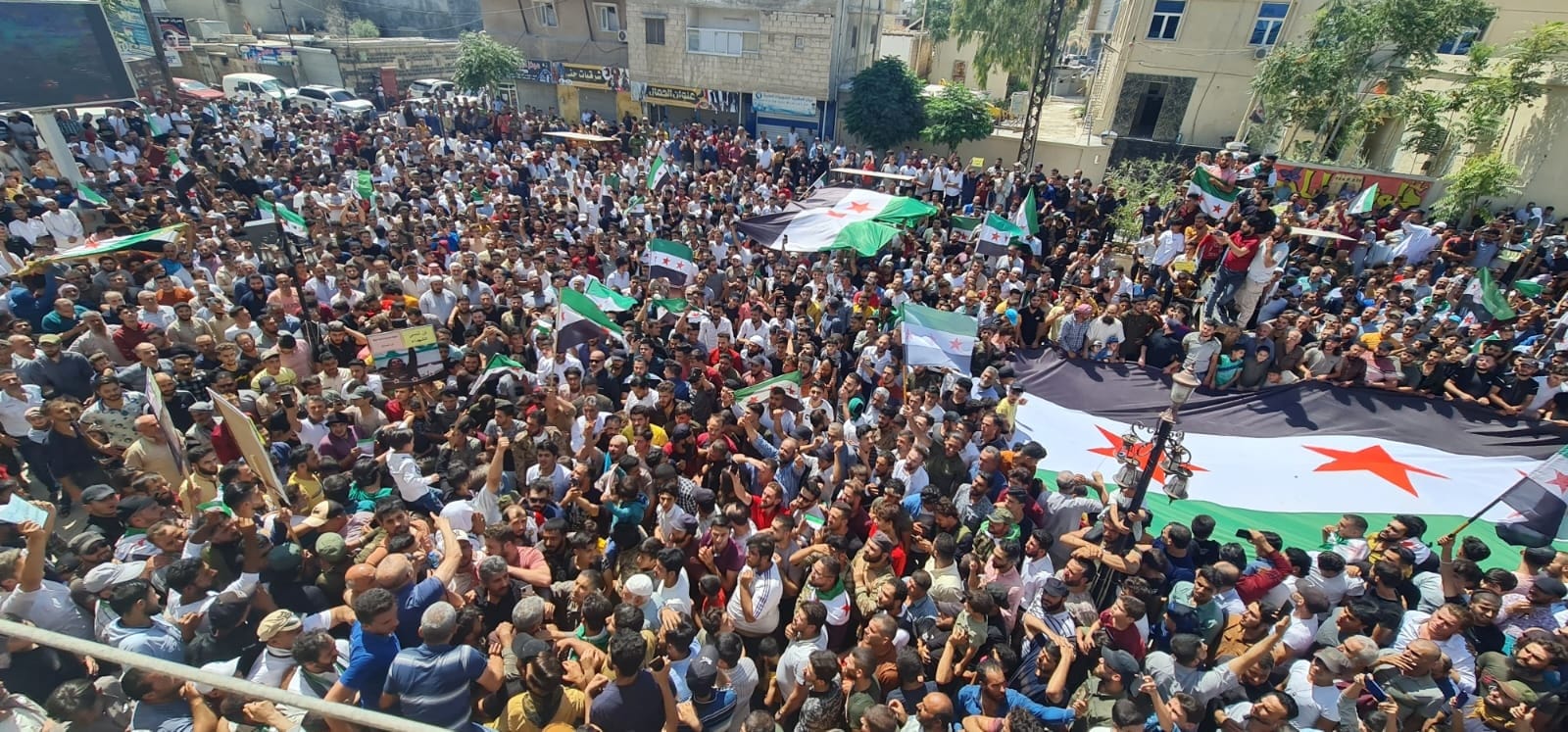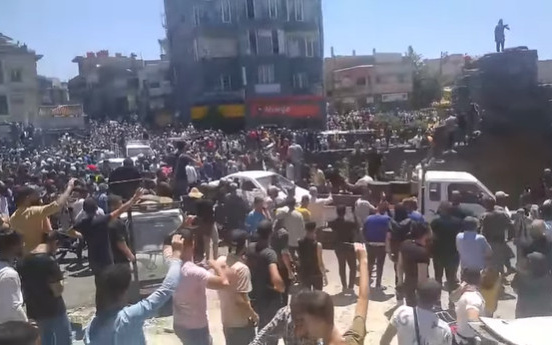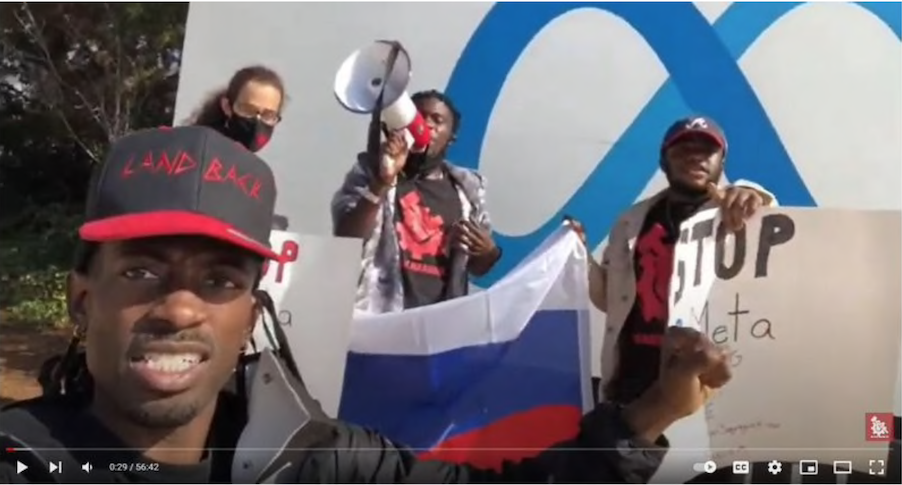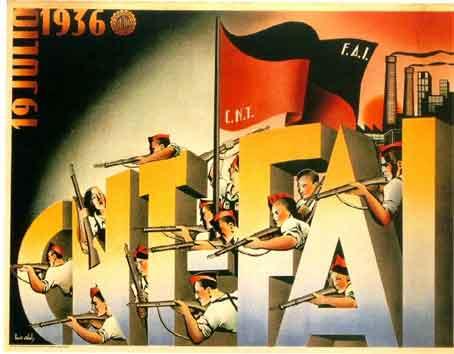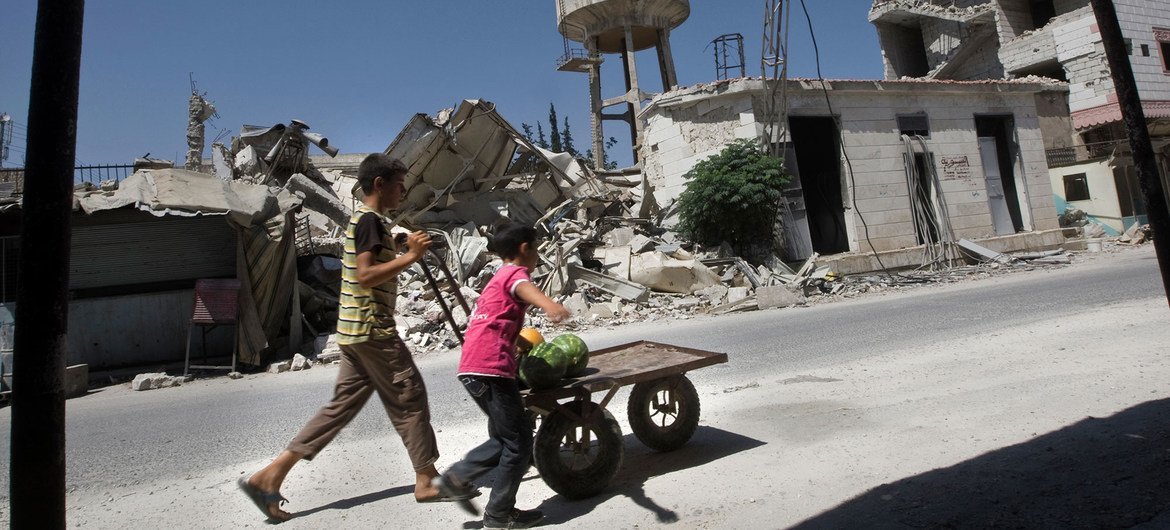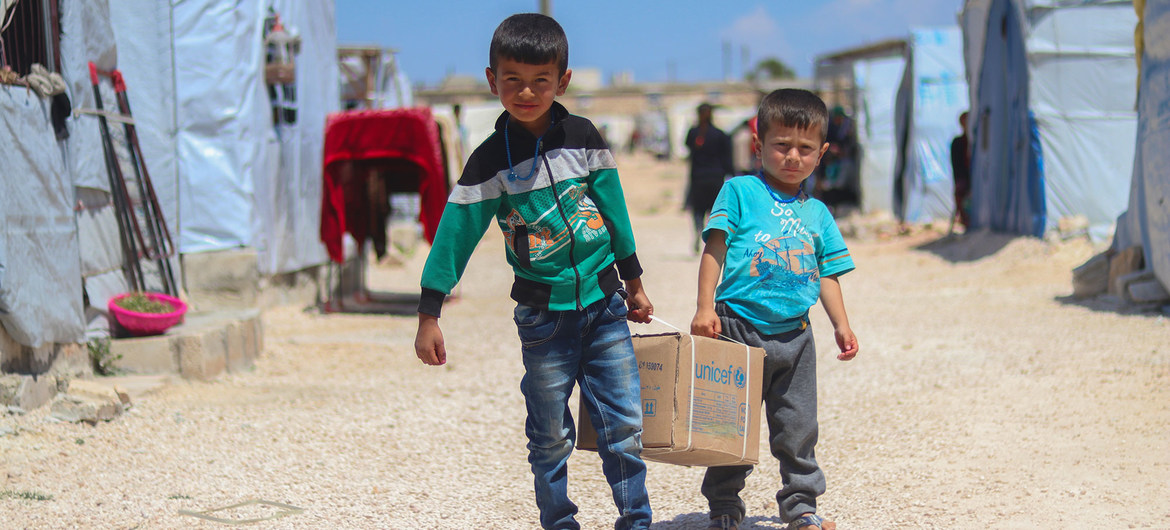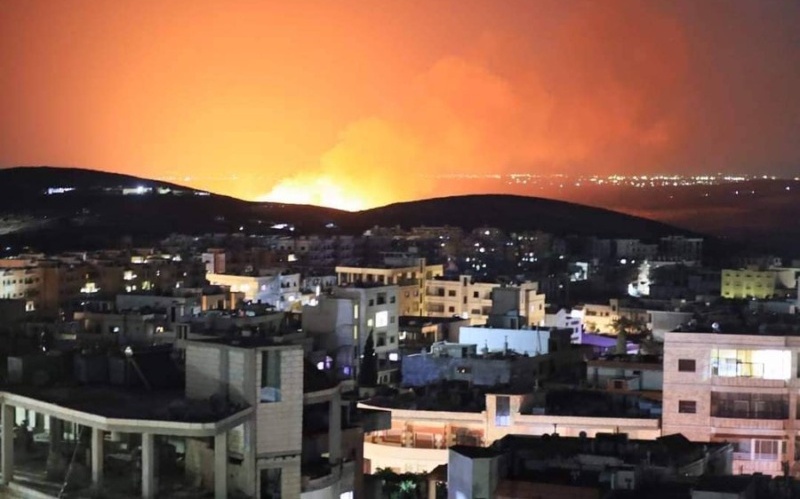
Russia conniving in Israeli strikes on Syria?
Satellite images show significant damage from an Israeli air-strike on the Assad regime’s main center for conventional and chemical weapons development. Nine buildings of the Scientific Studies & Research Center (SSRC) were destroyed or damaged, and a military captain was reportedly killed. The attack came as Russia removed the S-300 air defense system that it had positioned near the complex. The site, near Masyaf in northwest Syria, is also reportedly a base for Iranian forces and Iran-supported militias. (Photo via EA Worldview)




